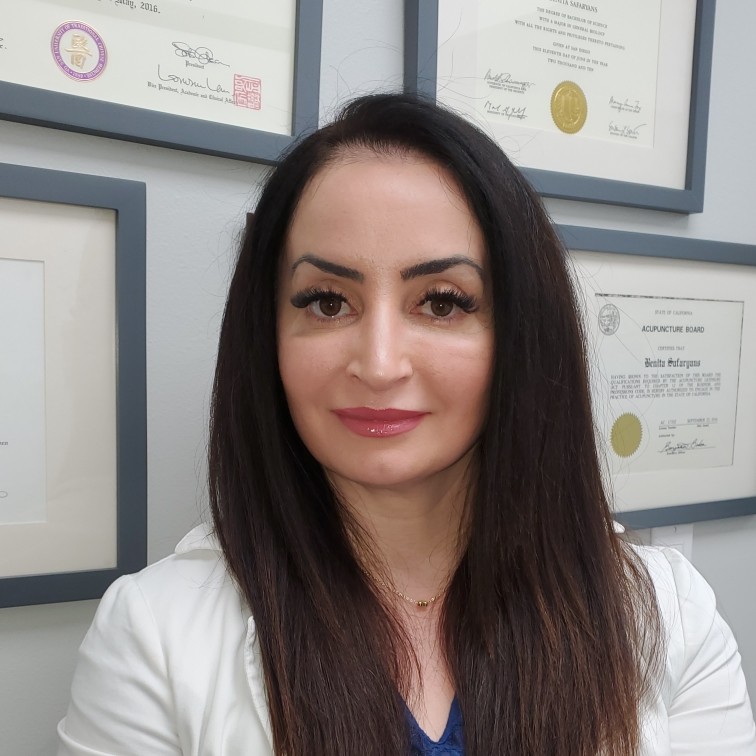
Dr. Benita Safaryans, FABORM, DAOM, LAC
Dr. Benita Safaryans, FABORM, DAOM, LAC
Dr. Benita Safaryans—Endometriosis Acupuncturist
Summary: Dr. Benita Safaryans, FABORM, DAOM, LAC, is an experienced endometriosis acupuncturist at Peak Life Acupuncture in Glendale, California. Benita Safaryans takes a holistic approach to treating endometriosis pain by focusing on restoring balance and addressing the root causes. Through acupuncture, she works to regulate the flow of qi and blood, reduce inflammation, and relieve pelvic discomfort. Benita Safaryans also emphasizes the importance of diet, guiding patients to eliminate common inflammatory triggers like processed foods and sugars while encouraging an anti-inflammatory, nutrient-rich diet that supports hormonal health. Her combined use of acupuncture, herbal medicine, and dietary strategies aims to ease chronic pain and promote the body’s natural healing for lasting relief. Patients appreciate Benita Safaryan’s compassionate care and dedication to improving their quality of life through personalized treatment plans.
City: Glendale, California, USA
Visit types: Virtual and in-person
Spoken languages: English, Armenian, Farsi
Interpreting services for other languages: No
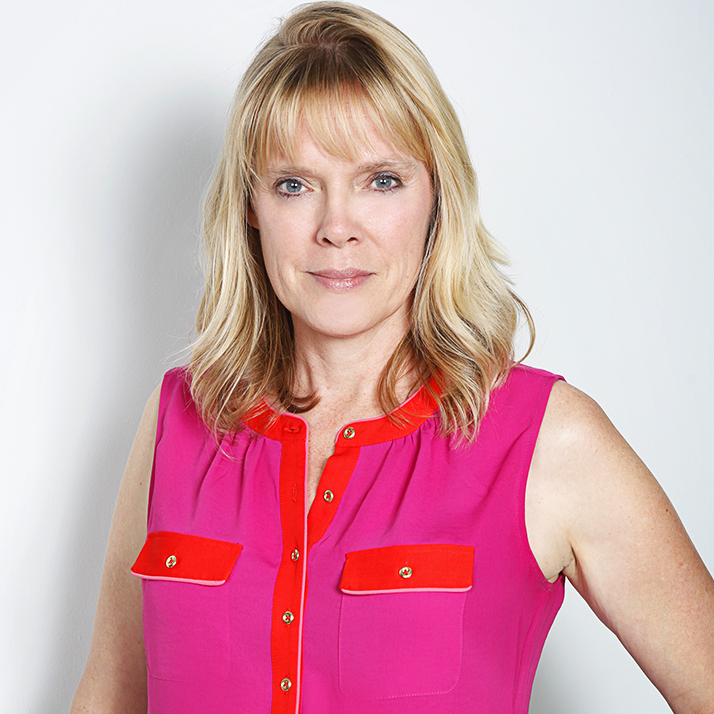
Janet Lee, LAC, DACM
Janet Lee, LAC, DACM
Janet Lee—Endometriosis Acupuncturist
Summary: Janet Lee, LAC, DACM, is a dedicated endometriosis acupuncturist at Vitality Holistic Medicine in Overland Park, Kansas. She combines acupuncture, Chinese herbs, and functional nutrition to provide a comprehensive approach to managing endometriosis symptoms. Her acupuncture treatments work to regulate the nervous system, stimulate the body’s natural painkillers, and reduce inflammation. Janet Lee also uses Chinese herbal medicine to improve blood flow and further decrease inflammation. By incorporating functional nutrition, she helps patients address inflammation at its root, supporting overall wellness. Janet Lee’s holistic care focuses on reducing pain and inflammation, improving the quality of life for those living with endometriosis. Her warm, patient-centered approach ensures that each treatment plan is tailored to individual needs for effective and lasting relief.
City: Overland Park, Kansas, USA
Visit types: Virtual and in-person
Spoken languages: English
Interpreting services for other languages: No
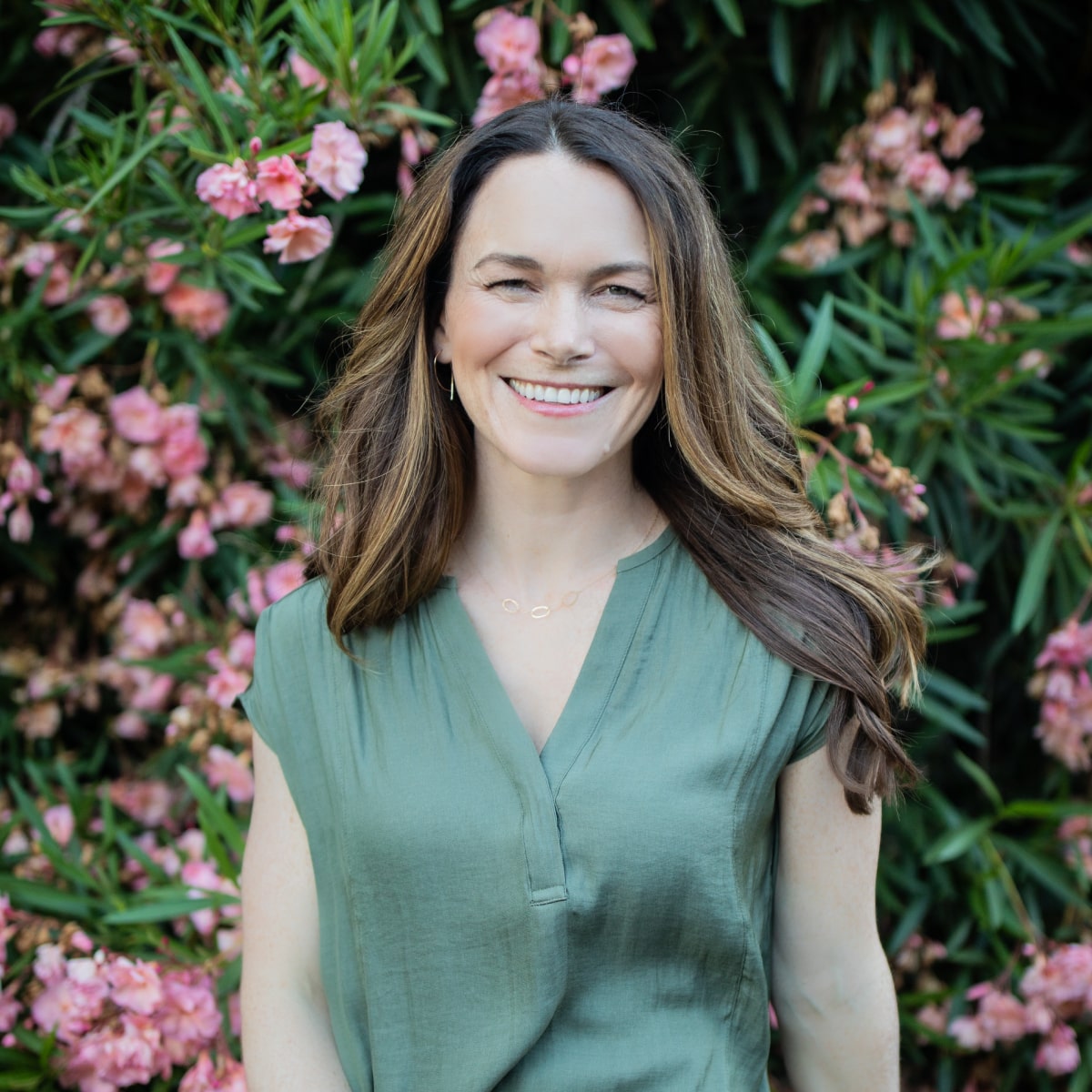
Niki Rarig, ND, LAc
Niki Rarig, ND, LAc
Niki Rarig—Endometriosis Acupuncturist
Summary: Niki Rarig, ND, LAc, is a compassionate endometriosis acupuncturist at East West Natural Medicine Center in San Luis Obispo, California. Niki Rarig embraces a collaborative, patient-centered approach, encouraging patients to build a supportive care team that may include excision surgeons, OBGYNs, pelvic floor therapists, mental health professionals, and nutrition experts. With expertise in acupuncture and naturopathic medicine, she addresses the physical, mental, and emotional aspects of endometriosis pain to enhance overall quality of life. Niki Rarig also focuses on related digestive and bladder issues, offering thorough assessments and treatments for conditions such as IBS, SIBO, and interstitial cystitis. Her integrative approach combines acupuncture, herbal medicine, supplements, and lifestyle changes, tailored to each patient’s unique needs for effective symptom management and improved well-being.
City: San Luis Obispo, California, USA
Visit types: Virtual and in-person
Spoken languages: English
Interpreting services for other languages: No

Lisa Grant, LAc, NCCAOM Dipl OMD, FABORM
Lisa Grant, LAc, NCCAOM Dipl OMD, FABORM
Lisa Grant—Endometriosis Acupuncturist
Summary: Lisa Grant, LAc, NCCAOM Dipl OMD, FABORM, is an experienced endometriosis acupuncturist based at Spring Mountains Acupuncture in Las Vegas, Nevada. Lisa Grant takes a holistic, functional approach to managing endometriosis pain, combining acupuncture and Chinese herbal medicine to help relieve symptoms and address hormonal imbalances. She emphasizes that effective endometriosis care goes beyond acupuncture alone and includes integrated lifestyle changes such as nutrition, supplements, exercise, and quality sleep to support the body’s natural detoxification pathways. Lisa Grant works closely with patients to create personalized treatment plans tailored to their unique needs, aiming to improve pain management and overall quality of life. In some severe cases, she collaborates with surgical options to optimize patient outcomes, always prioritizing compassionate, comprehensive care.
City: Las Vegas, Nevada, USA
Visit types: Virtual and in-person
Spoken languages: English, Japanese
Interpreting services for other languages: No
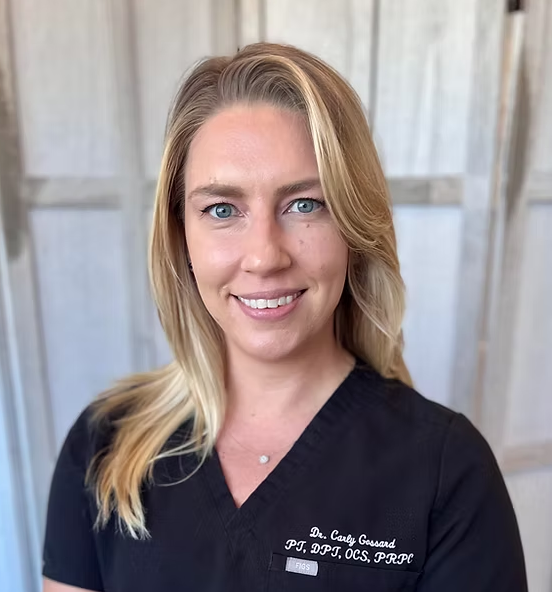
Carly Gossard, PT, DPT, OCS, PRPC
Carly Gossard, PT, DPT, OCS, PRPC
Carly Gossard—Endometriosis Physical Therapist
Summary: Carly Gossard, PT, DPT, OCS, PRPC, is a dedicated endometriosis physical therapist at Empowered Pelvic Health in Montvale, New Jersey. Carly Gossard’s approach emphasizes treating the whole person with a team-based philosophy that integrates orthopedic, pelvic rehabilitation, and movement therapies such as yoga and Pilates. Trained through the Herman and Wallace Pelvic Rehabilitation Institute, Carly Gossard collaborates closely with a trusted network of endometriosis specialists and mental health professionals to provide comprehensive, multidisciplinary care. This collaborative environment ensures that patients receive personalized support tailored to their unique needs. Carly values empowering patients to actively participate in their healing journey, fostering progress and lasting success. Her warm, patient-centered care creates a safe space where individuals feel supported in managing their endometriosis symptoms and improving quality of life.
City: Montvale, New Jersey, USA
Visit types: Office, Hospital
Spoken languages: English, Spanish (clinically fluent)
Interpreting services for other languages: No
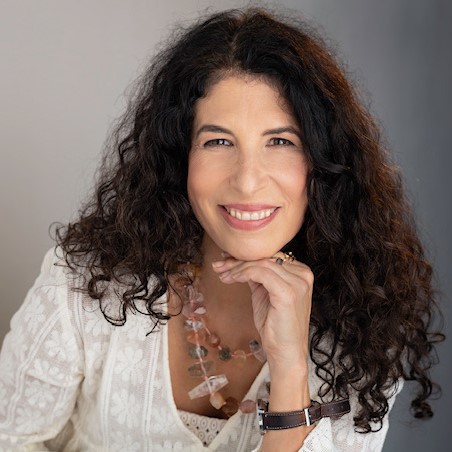
Denise Weisner, DACM, L. AC
Denise Weisner, DACM, L. AC
Denise Weisner—Endometriosis Acupuncturist
Summary: Denise Weisner, DACM, L. AC, is a compassionate endometriosis acupuncturist based in Los Angeles, California, dedicated to helping patients find relief from endometriosis pain. At Natural Healing & Acupuncture, Denise Weisner combines acupuncture with personalized recommendations on diet, lifestyle, supplements, and herbal therapies to support better menstrual comfort and ovulation health. Her holistic approach focuses on easing painful symptoms and improving overall well-being, ensuring each patient receives care tailored to their unique needs. She believes in empowering individuals to manage their endometriosis with gentle, natural therapies that promote balance and healing. Patients appreciate her warm, professional manner and her commitment to addressing both the physical and lifestyle factors that influence endometriosis symptoms.
City: San Diego, California, USA
Visit types: Virtual and in-person
Spoken languages: English
Interpreting services for other languages: No
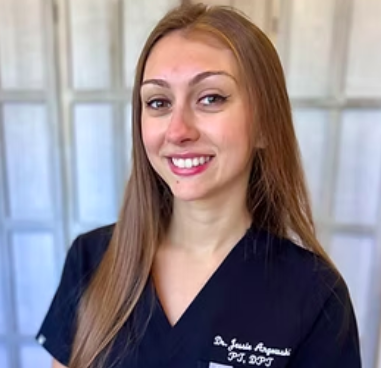
Jessica Angowski, PT, DPT, YTT-200
Jessica Angowski, PT, DPT, YTT-200
Jessica Angowski—Endometriosis Physical Therapy
Summary: Jessica Angowski, PT, DPT, YTT-200, is a compassionate endometriosis physical therapist based at Empowered Pelvic Health in Montvale, New Jersey. Jessica Angowski’s holistic approach focuses on both the physical and emotional aspects of endometriosis, creating a safe, supportive environment where patients feel truly heard. Her treatments often include visceral mobilization to enhance pelvic organ mobility and reduce adhesions, myofascial release to ease pelvic floor tension, and tailored pelvic floor strengthening or relaxation exercises. Additionally, Jessica integrates yoga therapy and breathing techniques to improve pelvic mobility and reduce stress, which can worsen symptoms. Education on posture, body mechanics, and lifestyle adjustments empowers patients to manage their symptoms and enhance their quality of life. Jessica Angowski is dedicated to delivering personalized, collaborative care that fosters healing, symptom relief, and overall well-being for every patient’s unique journey.
City: Montvale, New Jersey, USA
Visit types: Office/Hospital
Spoken languages: English
Interpreting services for other languages: No
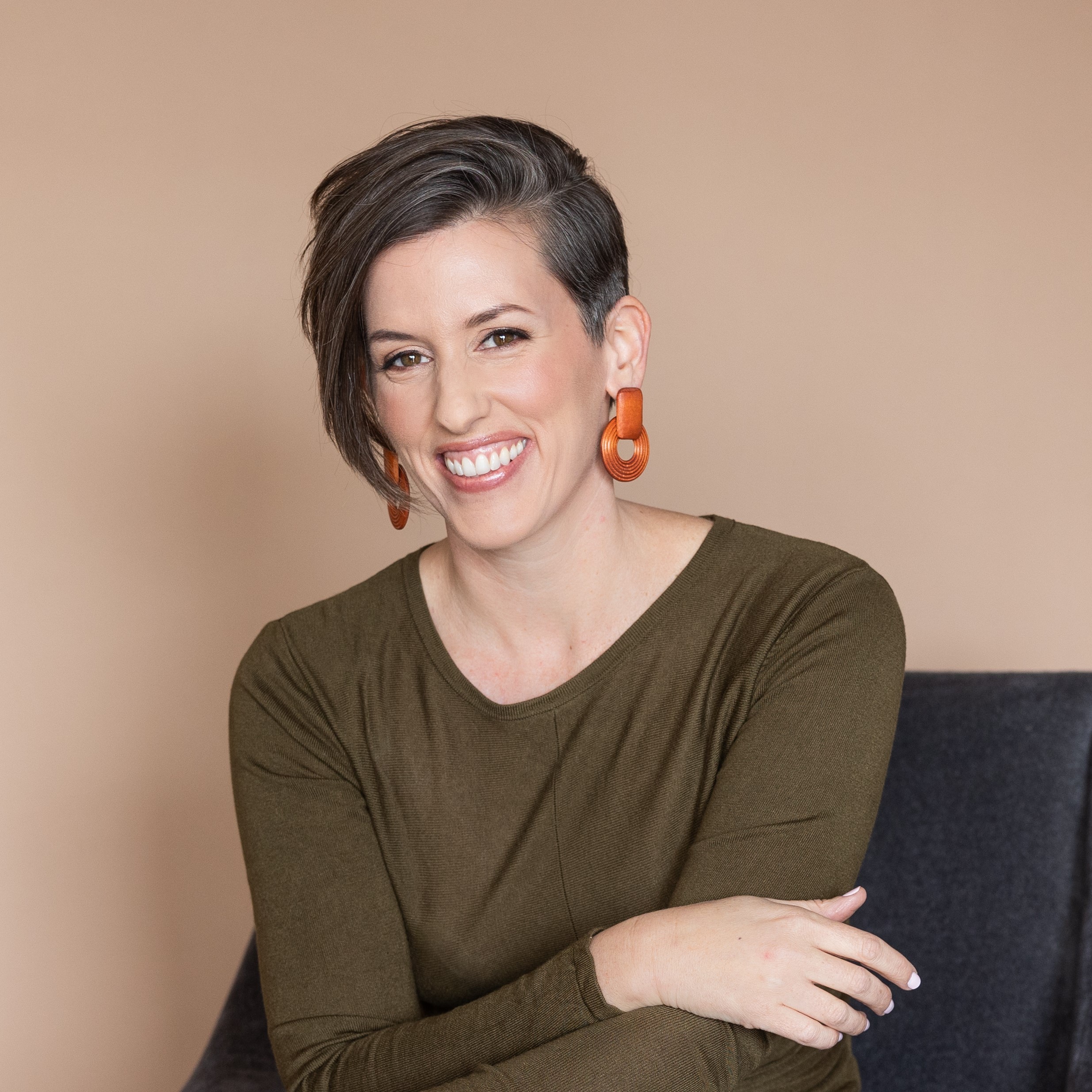
Merritt Jones, DAIM, LAc, MS
Merritt Jones, DAIM, LAc, MS
Merritt Jones—Endometriosis Acupuncturist
Summary: Merritt Jones, DAIM, LAc, MS, is a dedicated endometriosis acupuncturist based in San Diego, California, specializing in integrative care for pain management and improved quality of life. She collaborates closely with excision surgeons, pelvic physical therapists, and mental health professionals to provide a comprehensive, patient-centered approach. Understanding that living with endometriosis impacts physical, mental, and emotional well-being, Merritt offers personalized acupuncture treatments designed to ease pain, reduce inflammation, and support overall reproductive health. With a warm and holistic philosophy, Merritt Jones empowers patients to feel supported throughout their endometriosis journey, combining traditional acupuncture with modern integrative techniques. Located at Natural Harmony Reproductive Health, Merritt Jones’s care emphasizes a team approach to help patients regain balance and enhance their daily lives.
City: San Diego, California, USA
Visit types: Virtual and in-person
Spoken languages: English
Interpreting services for other languages: No
My role as an integrative acupuncturist is to offer tools for pain management and overall better quality of life while living with endometriosis. I believe that a comprehensive approach to supporting the endometriosis patient means addressing the physical, mental, and emotional aspects of care.
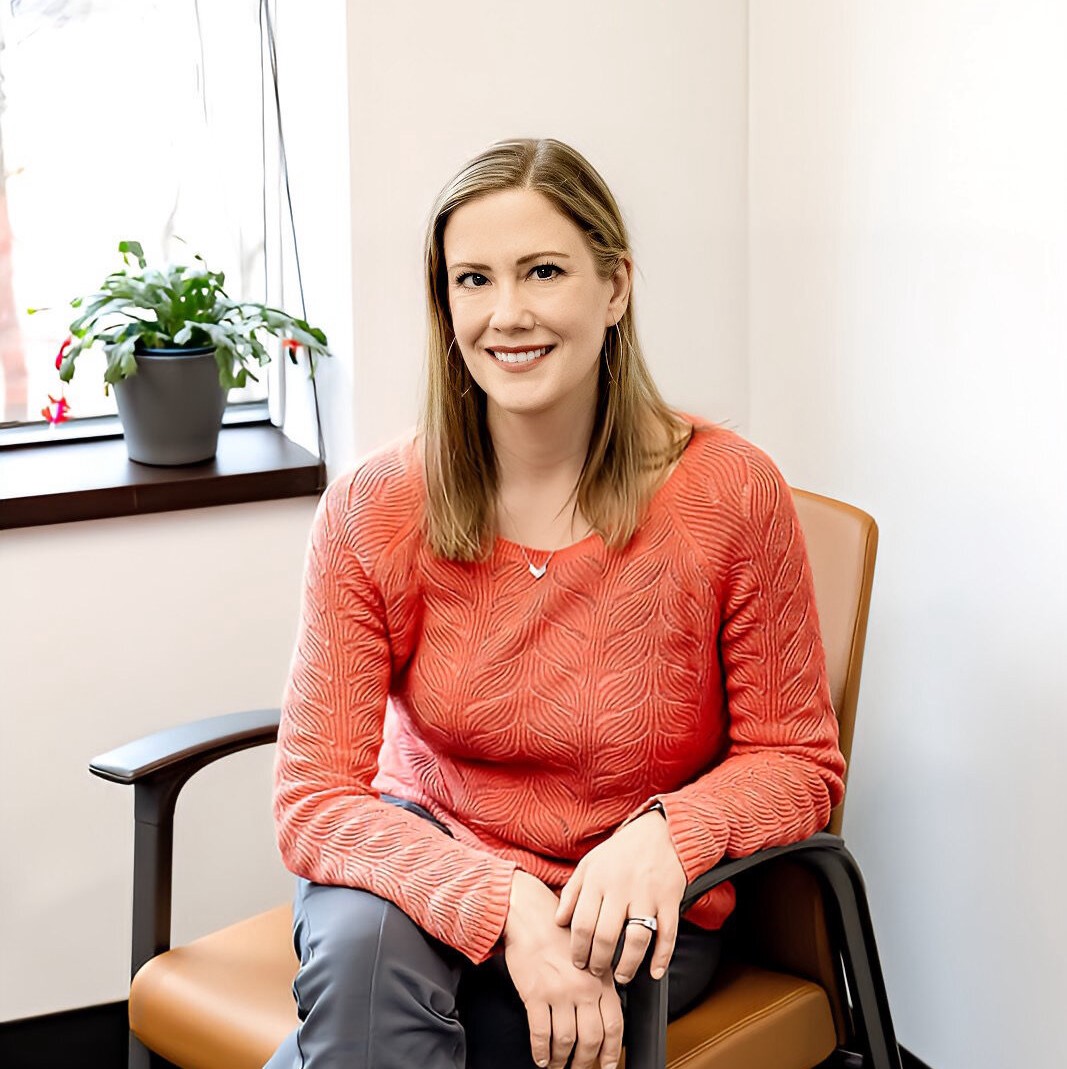
Bethany Hansen, PT, DPT
Bethany Hansen, PT, DPT
Bethany Hansen—Endometriosis Physical Therapist
Summary: Bethany Hansen is a dedicated endometriosis physical therapist based in Edina, Minnesota, committed to providing compassionate, patient-centered care through her practice, Bethany Hansen, LLC. Bethany Hansen, PT, DPT, emphasizes a multidisciplinary approach that combines pelvic floor physical therapy with supportive treatments tailored to each patient’s unique needs. Her expertise includes manual therapy techniques such as deep tissue mobilization, trigger point release, myofascial release, visceral mobilization, and internal pelvic floor work. She also integrates exercise, nervous system calming strategies and collaborates with other healthcare providers like endometriosis excision surgeons, functional medicine dietitians, and acupuncturists. Her holistic, team-based philosophy aims to optimize pain relief, restore function, and improve quality of life for patients navigating the challenges of endometriosis. Patients appreciate her warm, attentive approach and personalized treatment plans that empower them throughout their healing journey.
City: Edina, Minnesota, USA
Visit types: Home, Virtual
Spoken languages: English
Interpreting services for other languages: No

Megan Luybli, MS, RDN, LDN
Megan Luybli, MS, RDN, LDN
Megan Luybli—Endometriosis Dietitian
Summary: Megan Luybli is a compassionate endometriosis dietitian practicing at A Soft Place to Land in Bethlehem, Pennsylvania. Megan Luybli’s approach centers on patient-centered, weight-inclusive care that supports your unique journey with endometriosis. Understanding the physical and emotional challenges endometriosis brings, she focuses on improving your relationship with food and body while addressing digestive symptoms like bloating and discomfort. Megan Luybli embraces a Health at Every Size® (HAES®) philosophy, emphasizing gentle nutrition rather than restrictive diets, and also specializes in eating disorder recovery. Her goal is to provide holistic support that respects your choices and complements your medical care. With Megan Luybli, you won’t have to face endometriosis alone — she advocates for you and helps create a personalized plan to ease symptoms and enhance well-being in a warm, supportive environment.
Visit Type: Office
City: Bethlehem, PA
Spoken languages: English
Interpreting services for other languages: No
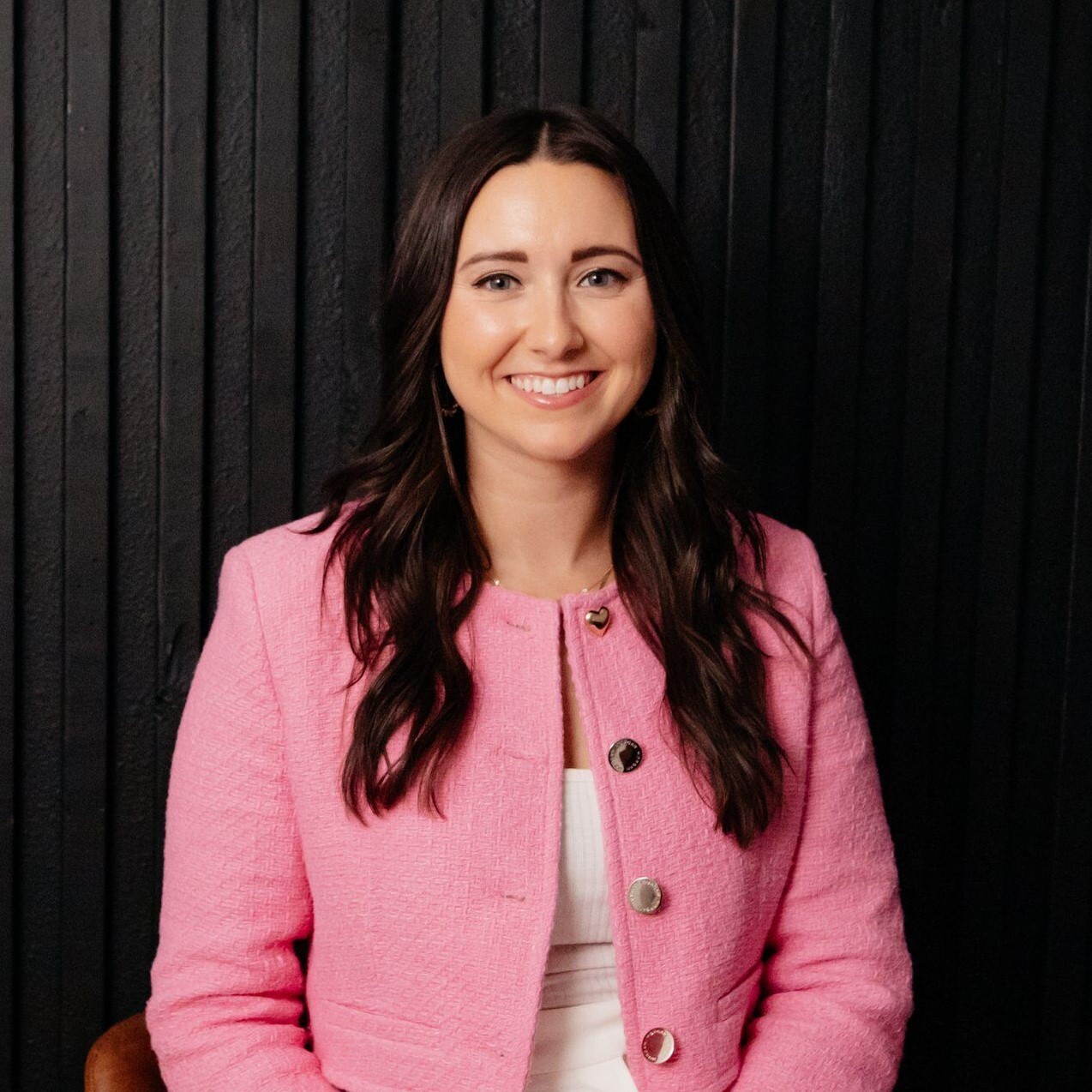
Amelia May, PT, DPT
Amelia May, PT, DPT
Amelia May—Endometriosis Physical Therapist
Summary: Amelia May is a compassionate endometriosis physical therapist based in Denver, Colorado, offering personalized, one-on-one care at Genesis PT & Wellness. At Genesis, Amelia May, PT, DPT, uses a holistic, whole-body approach to help individuals with endometriosis reduce pain, restore function, and feel empowered in their bodies again. She specializes in supporting active lifestyles and integrates her orthopedic background with pelvic floor expertise to create tailored, movement-focused care plans. Treatment may include functional dry needling, cupping, visceral mobilization, myofascial release, internal pelvic work, and home exercise prescriptions. She prioritizes validation and support, ensuring each patient feels seen, heard, and involved in their healing journey. Whether you’re a runner, lifter, or Pilates enthusiast, Amelia offers thoughtful, evidence-informed therapy to help you return to the life you love—stronger and more confident.
City: Denver, Colorado, USA
Visit types: Home, Virtual
Spoken languages: English
Interpreting services for other languages: No
My typical treatment strategies for Endometriosis & Endo-related pain involve home exercise prescription, [certified in] functional dry needling, cupping, some visceral mobilization, soft tissue work, myofascial release, internal vaginal and/or rectal work, lifestyle modifications/help, and more.
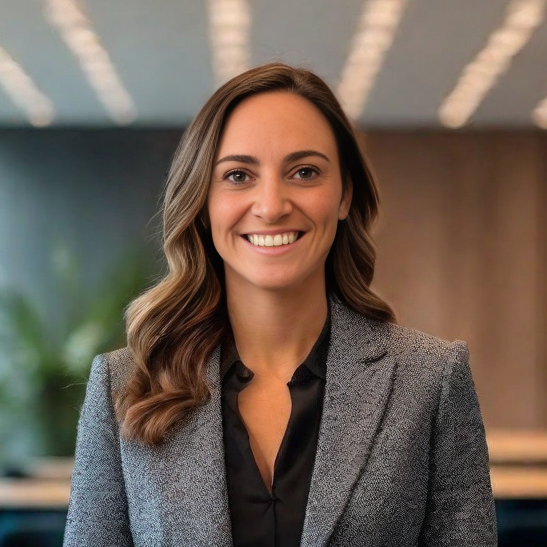
Dr. Jill Ingenito
Dr. Jill Ingenito
Dr Jill Ingenito – Endometriosis Specialist
Summary: Dr Jill Ingenito is an experienced endometriosis specialist based in Centennial, Colorado, dedicated to providing comprehensive, patient-centered care. Dr Jill Ingenito approaches endometriosis as a multifactorial disease, considering key theories such as retrograde menstruation, coelomic metaplasia, immune dysfunction, and genetic factors. This broad understanding guides her personalized treatment plans, which include excision surgery and tailored hormonal therapies like combined oral contraceptives, progestins, and GnRH modulators. Dr Jill Ingenito emphasizes a multidisciplinary approach, integrating pelvic floor therapy, dietary changes, and pain management to address persistent symptoms. For ongoing pain after surgery, she recommends NSAIDs, neuromodulators, and low-dose naltrexone to reduce inflammation and nerve-related discomfort. Her patient-focused philosophy prioritizes shared decision-making and holistic care to improve quality of life. With a commitment to staying current on emerging research, Dr Jill Ingenito combines expertise and compassion to support women through every stage of their endometriosis journey.
City: Centennial, Colorado, USA
Philosophy of Endometriosis Care: Endometriosis is a complex condition with multiple proposed theories of origin, and I approach its treatment with this multifaceted nature in mind. Here are the key theories I consider and how they influence my approach:
1. Retrograde Menstruation Theory: Endometrial-like tissue flows backward through the fallopian tubes into the peritoneal cavity during menstruation, where it implants and grows.
Influence on Treatment: This theory underscores the importance of hormonal suppression to reduce menstrual flow and mitigate disease progression. Treatments like hormonal contraceptives, progestins, and GnRH modulators can help control symptoms and prevent recurrence.
2. Coelomic Metaplasia Theory: The peritoneal lining transforms into endometrial-like tissue due to genetic or environmental factors.
Influence on Treatment: This theory supports the need for a holistic approach, including addressing potential environmental triggers and reducing inflammation through lifestyle modifications, diet, and anti-inflammatory therapies.
3. Stem Cell Theory: Stem cells from the bone marrow or endometrium migrate to ectopic locations and differentiate into endometrial-like tissue.
Influence on Treatment: This theory emphasizes the potential role of immune system modulation and ongoing research into regenerative therapies.
4. Immune Dysfunction Theory: Impaired immune surveillance allows ectopic endometrial-like tissue to implant and persist.
Influence on Treatment: I focus on optimizing the immune environment through anti-inflammatory strategies, adjunctive therapies (e.g., low-dose naltrexone), and encouraging overall immune health.
5. Genetic and Epigenetic Theories: A genetic predisposition and epigenetic modifications may make certain individuals more susceptible to developing endometriosis.
Influence on Treatment: Understanding that endometriosis is likely influenced by heritable factors helps me counsel patients on recurrence risk and tailor long-term management strategies.
6. Lymphatic and Hematogenous Spread Theory: Endometrial-like cells spread through the lymphatic system or bloodstream, explaining distant lesions.
Influence on Treatment: This theory highlights the importance of a systemic approach to the disease, particularly in cases with extra pelvic manifestations.
My Approach:
Excision Surgery: Recognizing that excision addresses the visible and tangible lesions of endometriosis regardless of origin, I prioritize this approach for definitive treatment.
Multidisciplinary Care: I integrate pelvic floor physical therapy, dietary interventions, pain management strategies, and psychological support to address the systemic impact of the disease.
Patient-Centered Care: I emphasize shared decision-making, tailoring treatment plans based on the severity of symptoms, goals, and individual patient needs.
Ongoing Education and Research: Staying updated on emerging theories and treatments is critical to providing the most effective care.
By addressing endometriosis as a multifactorial condition, I aim to provide comprehensive and compassionate care that not only alleviates symptoms but also improves the overall quality of life for my patients.
What type of surgery do you perform for endometriosis: Excision
Medication: In my practice, I incorporate a range of medications tailored to the individual needs of patients with endometriosis, always balancing symptom relief with long-term management goals. Here’s an overview of the medications I use and how I recommend them:
I frequently use hormonal therapies. Combined oral contraceptives (COCs) are a first-line option for mild to moderate symptoms or as a trial before more invasive interventions. These are used continuously or cyclically to suppress ovulation and reduce menstrual flow, which helps decrease inflammation and pain by reducing hormonal cycling. Progestins, such as norethindrone acetate, dienogest, or medroxyprogesterone acetate, are another option, particularly for patients who cannot tolerate estrogen or prefer non-estrogen approaches. These can be delivered orally, via injection (Depo-Provera), or intrauterine (e.g., Mirena IUD), thinning endometrial tissue and suppressing ovulation to reduce lesion activity and pain. GnRH agonists and antagonists, such as leuprolide (Lupron) or elagolix (Orilissa), are often used for moderate to severe symptoms or as an adjunct to surgery. These induce a hypoestrogenic state and are used short-term due to side effects like bone density loss, often combined with add-back therapy to mitigate these side effects. For long-term management, especially for those seeking contraception, levonorgestrel-releasing IUDs (e.g., Mirena or Kyleena) provide localized progestin release, reducing heavy bleeding and pelvic pain with minimal systemic effects.
Approach to Persistent Pain After Surgery: I often recommend NSAIDs, such as ibuprofen or naproxen, for acute pain or in combination with other therapies. These are most effective when taken around the clock during symptom flares to reduce prostaglandin-mediated inflammation and pain. Neuromodulators like gabapentin or amitriptyline are used for neuropathic or chronic pelvic pain that persists despite hormonal or surgical management, typically initiated at low doses and titrated as needed. Low-dose naltrexone is another option for chronic pain and inflammation, taken nightly with patient education about its gradual onset. For bowel-related symptoms, I may use antispasmodics like dicyclomine as needed during symptom flares to reduce smooth muscle spasms.

